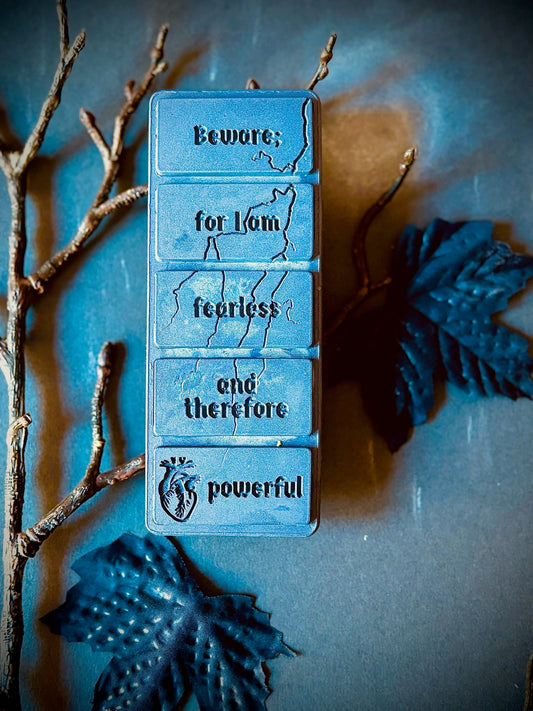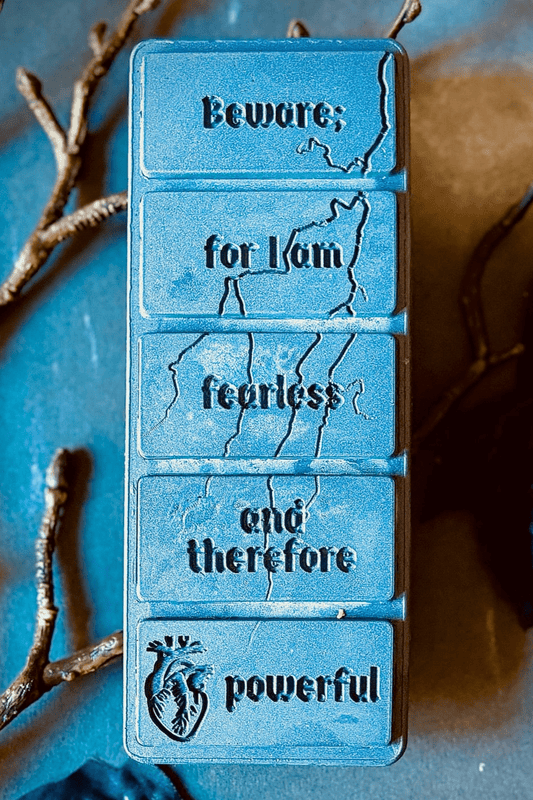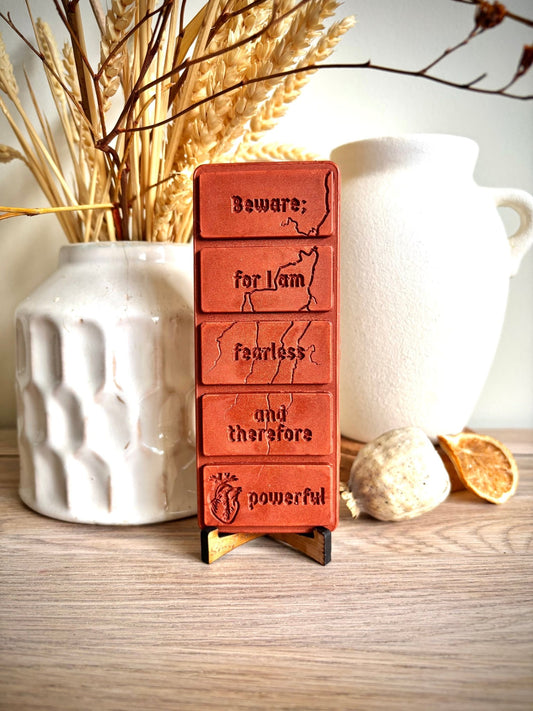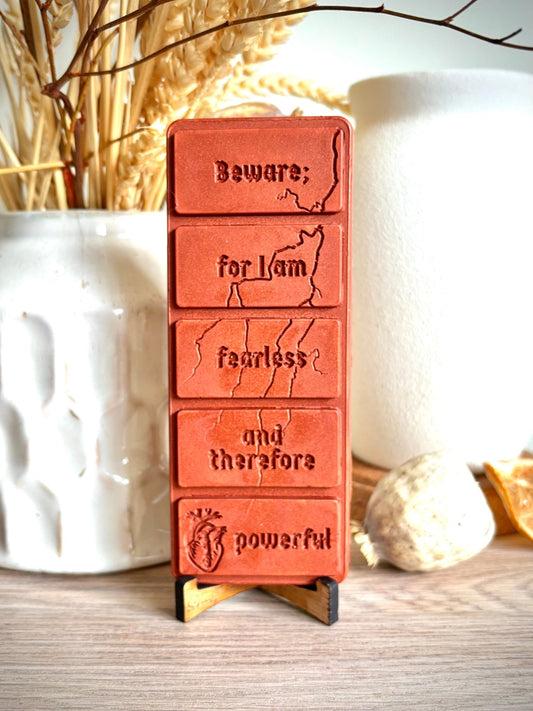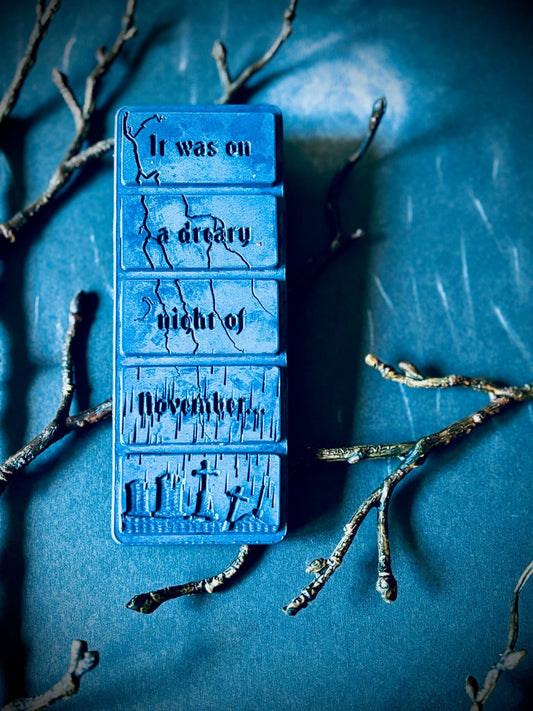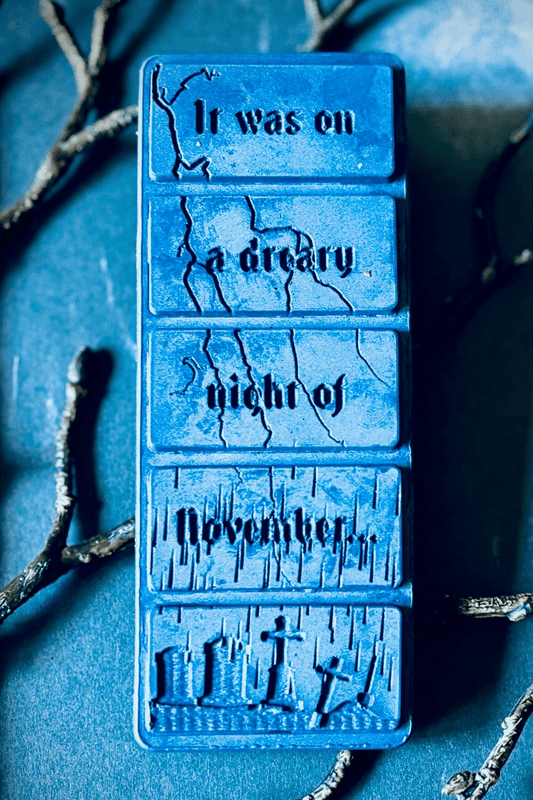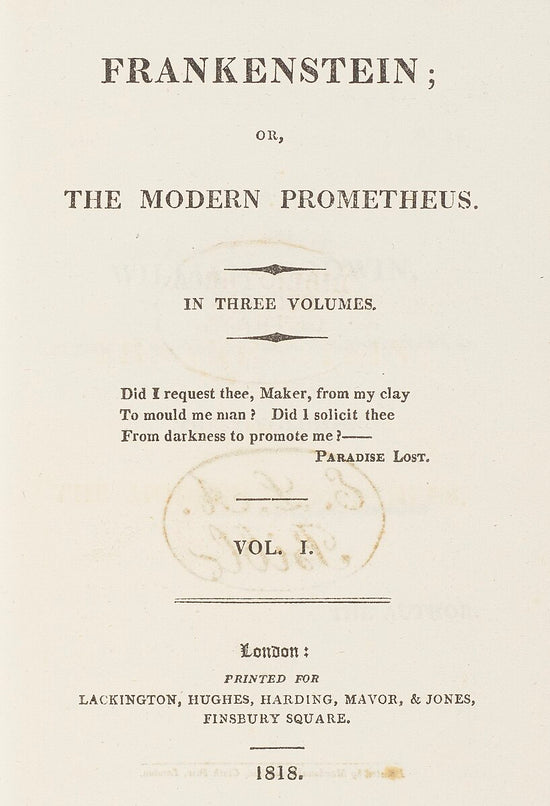
Frankenstein by Mary Shelley is a gothic novel that tells the story of Victor Frankenstein, a scientist who creates a living being from dead matter. As the creature comes to life, it seeks understanding and companionship but faces rejection and isolation, leading to tragedy and revenge. Exploring themes of ambition, humanity, and the dangers of playing God, Frankenstein is a haunting tale of creation and consequence.
Step into the eerie world of Mary Shelley's Frankenstein with our collection of bookish wax melt bars; the perfect gift for book lovers, offering a unique way to bring the dark, atmospheric essence of Frankenstein into your home. Whether you're seeking the perfect book gift or simply want to infuse your space with literary charm, these bookish wax melts will captivate your senses and thrill the book lover in your life.
Each wax melt features iconic, well-loved lines from Frankenstein, such as "Beware; for I am fearless and therefore powerful", allowing you to immerse yourself in the haunting themes of creation and isolation. Let the haunting words and themes of Frankenstein fill your home with mystery and intrigue, while enjoying a sensory experience like no other.
These bookish wax melts are a must-have for anyone who loves gothic literature and the beautifully fragrant allure of bookish gifts.
